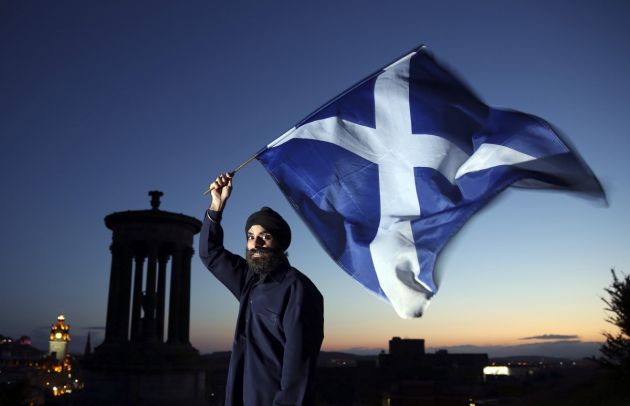If Scotland secedes from UK, or stays, interfaith group to support communities

Scotland's religious communities have met to consider the role they wish to play in Scottish society in the year that the country's voters will decide whether to stay in the United Kingdom.
The (Presbyterian) Church of Scotland said on July 25 it had convened a two-day interfaith conference in which the religious groups committed to serving their communities.
"This was an opportunity for representatives of Scotland's religious communities, including those from the Buddhist, Christian, Jewish, Muslim and Sikh traditions, to discuss the role they believe faith has to play in a modern Scotland," said the convener of the Church of Scotland's Church and Society Council, Rev. Sally Foster-Fulton.
Scotland's population accounts for some 5.25 million people, less than 10 percent of the 63 million people in the whole United Kingdom of Great Britain and Northern Ireland.
The voters of Scotland will on September 18 vote on whether to remain part of the United Kingdom, or to secede as an independent country.
Scotland lies north of England and takes up one third of the area of Great Britain in a union formed after a number of wars and conflicts. It entered into a political union with England in 1707 to create a single Kingdom of Great Britain.
A joint statement was agreed at the religious meeting affirming the important contribution churches and faith groups make to modern Scotland and their commitment to serving their communities.
Discussing the debate on Scotland's future, delegates agreed the role of faith goes beyond the outcome of September's referendum.
The meeting focussed on the rights of religious freedom and diversity, as well as education, social justice, and the voice of religious communities in Scotland's civic society.
"We believe that the statement paints a picture that is bigger than the binary 'yes' or 'no' of the referendum debate; and 'yes' or 'no' , we feel Scotland's religious communities have a valuable role to play in the public square of a future Scotland," said Foster-Fulton.
The two day event was held at the Conforti Institute in Coatbridge about 16 kilometers (10 miles) east of Glasgow, in collaboration with Action of Churches Together in Scotland and Interfaith Scotland.
It followed a meeting earlier this year which found a need for Scotland's religious communities to respond together to the place of faith in the Scottish Government's consultation on a proposed future written constitution.
If Scotland votes to stay in the United Kingdom, British politicians from the three major parliamentary parties have pledged to give the country more autonomy.